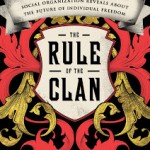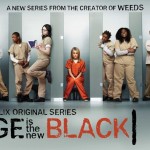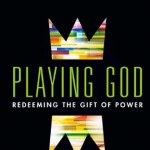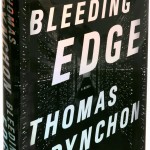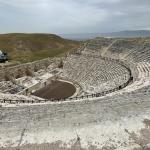This is a list of five amazing books. They come representing five noble genres: the novel, the memoir, poetry, the short story, and the essay. How good are they? This good: as I read, I often had to pause, put the book down, breathe or sigh or shake, and look around to see if the world was still there. It was – but each time, the way I viewed it had changed.
This list is particular, not comprehensive. I did not assemble it from other people’s recommendations, I did not poll anybody; between the ages of 17 and 22, I was assigned one book for a class, and stumbled upon the rest on my own. Discovery is one of the greatest joys of reading – what feeling is there like coming across a book that feels like it was written just for you, waiting for you to pick it up just when you needed it? I wish there were a way I could give you that feeling of discovery as well. If you were able to forget you got them off a list at all, that would be more than fine with me.
These books got to me at an early age, and in many ways deeply formed my understanding of what a really great book could be. But my primary consideration in including them on this list was the sense that that they speak specifically to the experience of being in college, or to being young. If you or someone you know is in college, maybe in search of something to read over this spring break or National Reading Month, then I say this is your time. Here is your list.
Nevertheless, this is not a list for college students or twenty-somethings only. All five books were written when their authors were between their thirties and sixties, and they represent a lifetime’s work and understanding. Nor is this a list for Christians only, not by a long shot. These are books that had me running up to friends – regardless of their major, gender, belief system or total lack thereof – saying, “Please please please let me read you some of this right now.” Good books are good books, and truth is truth, whether that’s factual truth, story-truth (which, as Tim O’Brien reminds us, is truer sometimes than happening-truth), or the truth that arises from poetic juxtaposition and rhythm. It is written that love rejoices in the truth. May your reading be full of rejoicing.
—
1) Novel: Great Expectations by Charles Dickens.
“Now, I return to this young fellow. And the communication I have got to make is, that he has great expectations. I am instructed to communicate to him that he will come into a handsome property. Further, that it is the desire of the present possessor of that property, that he be immediately removed from his present sphere of life and from this place, and be brought up as a gentleman – in a word, as a young fellow of great expectations.”
Pip, the young fellow in question and the narrator of Great Expectations, is not told why he has been chosen to receive a prestigious education, nor who his mysterious benefactor is – and so he arrives at his own self-serving conclusions. As the story unfolds, Pip gradually comes to a radically different understanding of who he is, and what his responsibilities are. He also learns the full of extent of his relationship to Miss Havisham, a jilted spinster who takes a curious interest in him at an early age, and her beautiful but scornful adopted daughter, Estella, with whom Pip is deeply in love.
Great Expectations is for anyone who has felt a split between college life and the life they had before – particularly if you’re coming from a background that feels less urban, less well-read, and less well-spoken by comparison.
I think most people do fit into the last category. Most people who go to college did not grow up speaking the language of scholarly discourse. They are not using words like ‘teleology’ at home. (My dad once laughed at me outright for trying that one and I deserved it, because I was trying to show off, and because my attempts to define the term were so feeble.) In Dickens’ world – which is not so different from ours today, a hundred and fifty years later – language is identity and identification, personhood and expression. Talking does little to overcome class differences; more commonly, it perpetrates them. As Pip acquires new manners and a new way of speaking, he becomes estranged from his father figure Joe, a blacksmith to whom he was once apprenticed. Pip becomes acutely conscious of Joe’s accent (“Pip, how AIR you, Pip?”), and Joe of his. At one particularly awkward and painful reunion, the two are nearly unable to speak to each other. Pip’s pride and standoffishness are partly to blame, but we also see a real divide between the two characters of class and education level, which in the figure of Pip, is strongly and sadly tied to the experience of leaving home, growing up.
As a novel, Great Expectations is concerned with causality, which, in Dickens’ worldview, means that it is also concerned with justice. As Pip finds himself torn between his mysterious benefactor and figures like Joe, who represent the upbringing he can’t leave behind, the novel prompts us as readers to consider to whom we are indebted for our identity.
On an even larger scale, the novel shows how interconnected people are globally, how one person’s actions can have tremendous consequences for someone else years later. The professor who assigned the novel to our class related a conversation he’d had with his young children. He said to them, that soccer ball you guys have? Probably some child your age, across the world in China or India, had to labor so you would have that ball to play with. Without revealing any spoilers, our professor was using the plot of Great Expectations to teach his young children about globalization, and it wasn’t a stretch. Throughout his life, Dickens was deeply concerned with the rippling effects of the Industrial Revolution, and in Great Expectations he combines his keen hunger for social justice with a riveting storyline and some of his most fully realized characters. Start your reading here.
(A final note – while there have been many movies and TV adaptations, none of them has quite managed to capture the novel’s considerable sense of humor. Don’t shortchange yourself!)
2) Memoir: Augustine’s Confessions.
“But I, miserable young man, supremely miserable even in the very outset of my youth, had begged You for chastity, saying, ‘Give me chastity and continence, but not yet.’”
Just about every cover of Confessions featured a bearded old scholar with a quill in his hand and a halo over his head, and I think that does the man a disservice. Part memoir and part philosophical treatise, Confessions traverses such subjects as stealing pears and throwing them to pigs, the trials of learning Greek, and the various dilemmas that accompany sex, marriage and singlehood. It’s also a wonderful firsthand account of a life shaped by good friends, supportive colleagues and teachers in the academy, and a loving, indefatigable mom, all in some of the most elegant prose ever written.
Augustine of Hippo (354- 430 A.D.) spent much of his life as a highly regarded academic in Carthage, a city which rivaled Rome in wealth and importance. Like Rome, Carthage was a place bursting with diverse cultures and ethnicities, competing philosophies, and all manner of people from orators to gladiators. Augustine knew well what it was like to be a young person growing up in a scene like that, eager to be accepted by your peers. As he wrote on the occasion of the pear theft, “O Friendship too unfriendly! that mysterious seducer of the soul, that greediness to do mischief out of mirth or wantonness, that craving for others’ loss, without desire for my own profit or revenge; so that when they say, ‘Let us go, let us do it,’ we are ashamed not to be shameless.”
On his journey through several schools of thought before settling on Christianity, Augustine never stopped pursuing truth, nor did he confine himself to any one academic discipline. Philosophy, political science, pedagogy, rhetoric, literature, linguistics – he excelled at them all. In college, it can be easy to get defensive about your major(s), especially if you fall prey to fears that it’s all you’ve got going for you. It is not. So don’t let your math and science friends laugh at you if you sometimes struggle with numbers; don’t let your arts and humanities friends pigeonhole you as someone who has no taste. Don’t say “I can’t handle statistics” or “I can’t write anything creative.” No one is born knowing how; you have come to college to learn. Be open to everything. Augustine would approve.
(A note on translations: While there are several versions online, if you can, try to get this out of a library, or a bookstore where you can browse different translations. Look for a translation that feels accessible to you; you may prefer a slightly updated text, with ‘You’ instead of ‘Thou.’)
3) Poetry: Averno by Louise Glück.
He waited many years,
building a world, watching
Persephone in the meadow.
Persephone, a smeller, a taster.
If you have one appetite, he thought,
you have them all.
On the topic of being open to everything, when was the last time you read a book of contemporary poetry?
Louise Glück has published over fourteen books and received numerous awards, including the Pulitzer Prize; Averno was a finalist for the National Book Award. While Glück’s poems stand on their own, Averno is particularly satisfying as a complete, crafted collection. Named for a crater lake regarded by the Romans as the entrance to the underworld, the book almost takes on a loose narrative arc, exploring changing seasons and desecrated landscapes, both external and within:
Summer after summer has ended,
balm after violence:
it does me no good
to be good to me now;
violence has changed me.
With several poems exploring the myth of Persephone, Averno is a heart-stopping rumination on youth, innocence, sex, and mortality.
Read “Persephone the Wanderer”
4) Short story collection: The Collected Stories by Amy Hempel.
“It never happens when you’re thinking about it,” she once observed. “Earthquake, earthquake, earthquake,” she said.
“Earthquake, earthquake, earthquake,” I said.
Like the aviaphobe who keeps the plane aloft with prayer, we kept it up until an aftershock cracked the ceiling.
Amy Hempel has said she’s drawn to moments – “moments when power shifts between two people, or moments when something small but encompassing happens.” Many of her stories happen in the quiet aftermath of trauma, when self-conviction and self-deception meet. It’s when the narrator of “The Harvest” informs us, halfway through a firsthand account of a near-fatal car accident, “I leave a lot out when I tell the truth.”
Hempel writes at the level of the sentence: her stories are very short, and startlingly precise. Her narrators have impeccable comic timing, even when the lines they deliver are not exactly jokes. A young woman notes of her father – widowed, not divorced – “He was a bigger catch for the sorrow attached.” A bridesmaid, seeing the bride’s dog offer “a frantic display of devotion,” remarks, “I used to think I wanted to be loved like that. But I don’t want to be loved like that.” At once wry and intimate, Hempel’s work deftly captures the experience of being geographically and emotionally adrift. Young protagonists feature in “Going,” “Pool Night,” “The Most Girl Part of You,” “The Uninvited,” “The Afterlife,” and the deservedly acclaimed “In the Cemetery Where Al Jolson is Buried” (available online at http://fictionaut.com/stories/amy-hempel/in-the-cemetery-where-al-jolson-is-buried).
5) Essays: Mystery and Manners by Flannery O’Connor.
“Not long ago, a teacher told me that her best students feel that it is no longer necessary to write anything. She said they think that everything can be done with figures now, and that what can’t be done with figures isn’t worth doing. I think that is a natural belief for a generation that has been made to feel that the aim of learning is to eliminate mystery. For such people, fiction can be very disturbing, for the fiction writer is concerned with mystery that is lived. He’s concerned with ultimate mystery as we find it embodied in the concrete world of sense experience.”
The majority of Flannery O’Connor’s essays collected in Mystery and Manners concern the writing and teaching of fiction. But I don’t plan on being a fiction writer, you say. No problem, this book is still for you. O’Connor’s essays are clear, direct, and potent. They teach you how to read fiction – not with the aim of coercing a story to give up a one-line meaning or moral, but out of “a love of the language and what can be done with it in the interests of dramatic truth.” They model how to construct arguments, cite evidence, and defend unpopular points of view (O’Connor was a Catholic Southerner whose fiction was often accused of being ‘grotesque’). These essays have probably taught me more about writing than any class I took in college.
Reading Mystery and Manners, it can be hard to imagine a younger Flannery O’Connor, less sure of what she believed. But even she had some learning to do in school: as she writes, “I was well on the way to getting a Master’s degree in English before I really knew what fiction was, and I doubt if I would ever have learned then, had I not been trying to write it.” A prayer journal she kept during that time records some of her struggles with Catholicism: “I dread, oh Lord, losing my faith. My mind is not strong. It is a prey to all sorts of intellectual quackery. I do not want it to be fear which keeps me in the Church.” She emerged from the university confident and rigorous, but also genuinely understanding toward young people who found themselves as shaken up as she had once been. When a college freshman named Alfred Corn wrote to her about his experience (http://www.patheos.com/blogs/acatholicthinker/2014/02/dear-ms-oconnor-on-writing-letters-to-flannery/), she wrote back to reassure and challenge him in equal measure. One line in particular sheds light on the formative years that preceded her essays: “What kept me a skeptic in college was precisely my Christian faith. It always said: wait, don’t bite on this, get a wider picture, continue to read.”
There’s sound advice that will last you long after school.
—
Extra credit reading, for the overachieving undergraduate: What would you recommend?

